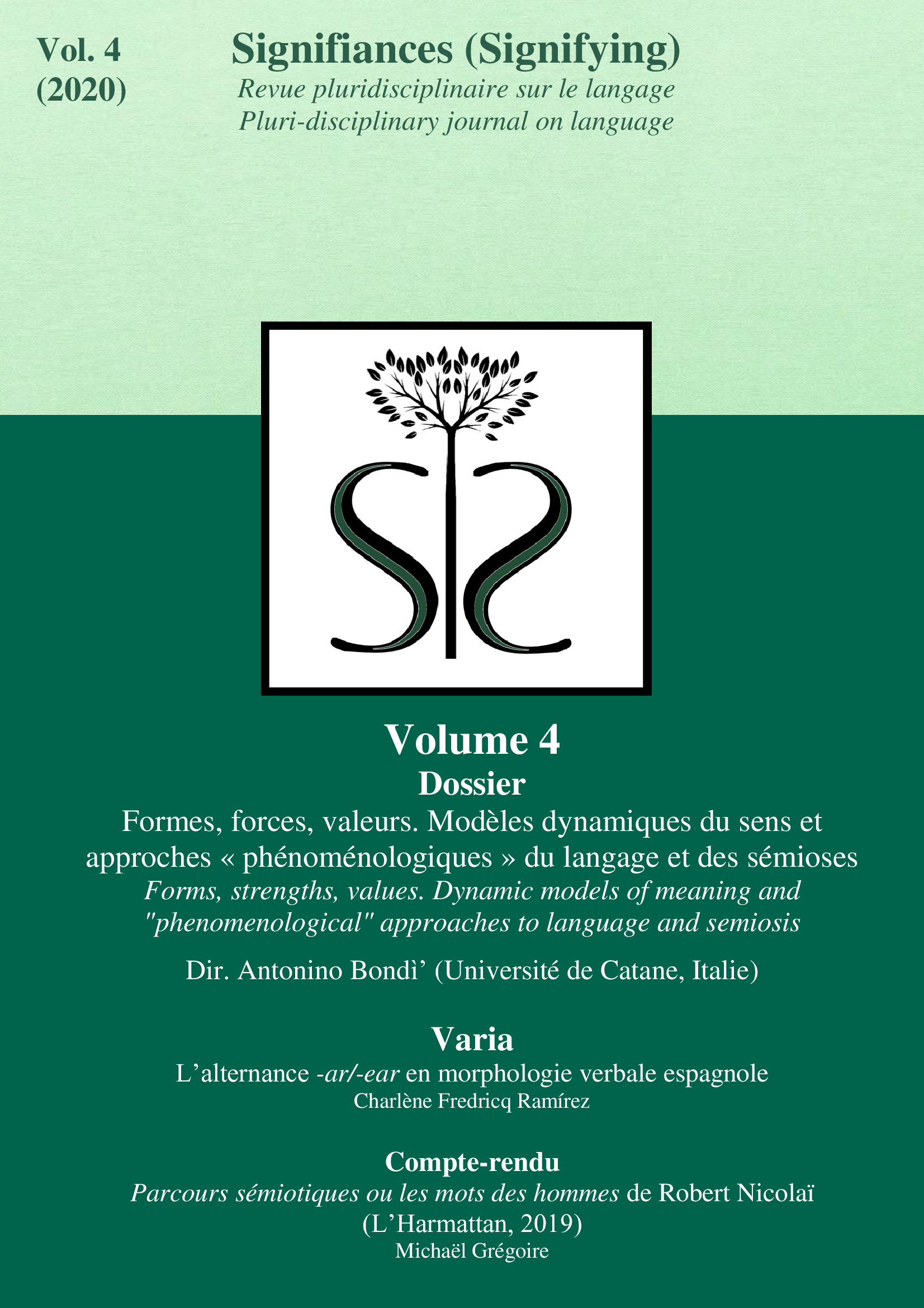Languaging as Emergent Constraint-satisfying Self-organizing Activity
Dialogical context-completing, context-making, and context-seeking dynamics
DOI :
https://doi.org/10.52497/signifiances.v4i1.269Résumé
Languaging is a manifestation of intelligent human action that enables selves to seek and to co-articulate functional fits between self and selected aspects of the self's social and cultural environments. Selves have open-ended endogenous tendencies that strive for articulation in social situations. The final products of these tendencies -- specific utterances -- have functional capacities to enter into co-articulated relations with the other functioning components of larger-scale socio-affective-cognitive assemblages. Internal processes of microgenetic construction that have their origins in the pre-linguistic infra-structure of the self are corporeally schematized and entrained to and shaped by global order parameters, e.g., lexicogrammatical pattern. Intrinsic functional constraints on languaging activity are the work of a complex non-optimized system (the self) that draws on available resources in context-sensitive ways in order to yield social and cognitive outcomes. Infant proto-language is a guide to the emergence of these constraints.Téléchargements
Publié-e
2021-01-25
Comment citer
Thibault, P. J. (2021). Languaging as Emergent Constraint-satisfying Self-organizing Activity: Dialogical context-completing, context-making, and context-seeking dynamics. Signifiances (Signifying), 4(1), p. 20–65. https://doi.org/10.52497/signifiances.v4i1.269
Numéro
Rubrique
Articles


